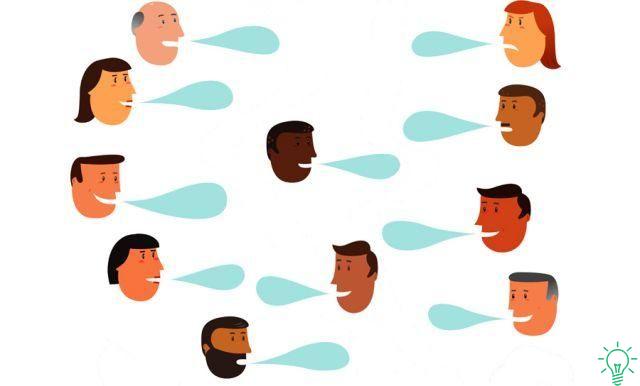
Improve the social skills it not only helps to become a better person, but opens many doors in society and can also bring psychological benefits, because it will make us feel more confident and more satisfied with our life.
Fortunately, social skills are ways of acting that are learned throughout life, they are not innate, so if we work hard, we can develop them even as adults.
Basically, there are some basic social skills (which would be: knowing how to listen, asking the right questions, knowing how to start and end a conversation ...) and there are the more complex skills (accepting criticism, learning to ask for help, convincing others through speech ...).
Improving social skills, both the most complex and the basic ones, is essential in our society, since practically all everyday life is based on interpersonal communication. We are no longer in the time of the caves in which strength and physical abilities were fundamental, today society places much more value on intelligence and sociability.
So, this time I would like to share some simple techniques with you to improve ours social skills.
1. The broken record technique: it consists in repeating our opinion over and over again, like a broken record. This technique is particularly useful with i sellers and manipulators, but also to address those who try to shift the conversation to another topic, perhaps because they try to convince us of a different idea, an idea that does not particularly interest us. So we would be demonstrating without breaking down that we have a very specific goal and are willing to follow it.
2. The negative affirmation: those who have passed a dissertation certainly know what it is, but the truth is that it is also very useful in many other contexts, especially when the other person has greater decision-making power. Basically it consists in finding a point in common with the opinion of the other, giving him part of the reason and, at the same time, offering another perspective.
For example, your partner complains that you came home late: "You should have come back earlier, your attitude is unacceptable ..."
To which we reply: "It's true, I came back late (affirmation), but considering that I hardly ever go out (another point of view), I didn't think it would be a problem."
3. The sandwich technique: The main goal of this technique is to convey a critique, ensuring that it will be well received. To do this, let's start by pointing out a positive aspect, then mention something that can be improved and end with a few words of encouragement.
For example: “I know how hard you have worked to complete this project. However, I think you may have paid more (critical) attention to it. I am sure you will be able to improve in this respect. You have great potential ".
4. Repeat each other's messages: The most common mistake made by people who are immersed in an argument is to hide behind their point of view. With this technique, you will show the other that you listen to their opinions and understand them. In reality, it will be enough to repeat his words, especially those relating to the emotions he feels.
For example: "I know you feel annoyed because (the cause) and I understand perfectly ..."
5. Give affection: This may sound silly to you, but the truth is that the vast majority of people react positively to affection, so this is one of the main social skills to develop.
Giving affection does not mean kissing a stranger, but showing with our extraverbal language that we appreciate him as a person and are open to dialogue. To do this, you can start by shaking her hand warmly, smiling at him whenever the situation allows, maintaining a slightly inclined posture towards him to show attention and, above all, never crossing your arms at chest height.

























